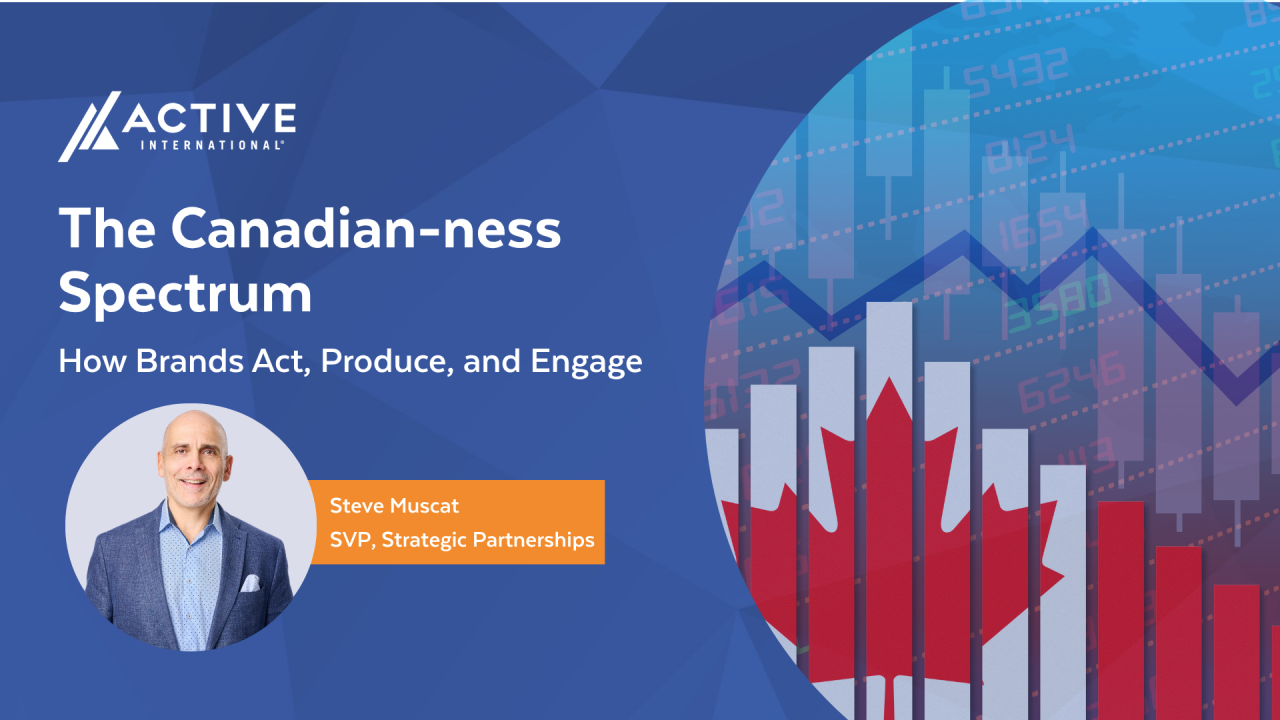This article is the final installment of a three-part CMA Café series based on a roundtable discussion with senior marketers on what it means to be Canadian, branding, and tariffs. Here are the links to the previous articles for your reference: Navigating Cost Pressures: Inaction is riskier than change | LinkedIn , Context Is the New Strategy: Rethinking Global and Local Markets | LinkedIn
With 2025 shaping up to be a CMO’s nightmare obstacle course, how does one adapt marketing plans in a timely manner that resonates with the current customer base, while also attracting new ones? Playing the Canada card of course but wait… there are pitfalls there.
What Is Canadian?
The most thought-provoking discussion of the day at the CMA offices came in response to a deceptively simple question: What does it actually mean to be Canadian?
A great example of this is Kraft Peanut Butter. As distinct to Canada as Swiss Chalet’s quarter chicken with fries coupled with Chalet dipping sauce, Kraft only manufactures Peanut Butter in Canada, yet we do not grow peanuts here. Does that mean we abandon a national treasure?
Think about the spectrum of “Canadian-ness”—including elements from where a company is headquartered, to where it sources materials, to how it contributes to the local economy. Some brands manufacture abroad but operate entirely out of Canada. While others are owned by international entities but market themselves as proudly Canadian due to heritage or consumer base. These blurred lines make authenticity all the more important.
Several marketing leaders point to the challenge of defining a unified “Canadian” identity in an era of global commerce and shared platforms. Does a Canadian brand lose credibility if it uses overseas suppliers? Can an international company still “act Canadian” in its approach to the local market? And is today’s consumer even prioritizing Canadian origin—or is it more about transparency, community contribution, and shared values?
There is no single answer. But we do all agree that trust is earned not through slogans, but through authenticity, clarity and consistency. Being Canadian, in this context, is less about a label and more about how a brand shows up for its customers, employees, and communities.
A national survey from Abacus Data spanning the past few years shows that Canadians are now in a state of precarity. With 68% worried about their ability to afford basic needs over the next six months and 70% likely to delay major life decisions due to financial uncertainty, unpredictability is running rampant. Grocery shopping reflects this feeling, revealing 32% shop based on what matters most to them and 31% have become more disciplined and strategic in their purchases. It is about reclaiming a sense of control in an uncertain world. The headline … 86% feel a sense of pride when buying a Canadian product.
Every marketer that can, will speak passionately about how sourcing Canadian-grown ingredients, manufacturing locally, and supporting communities through heartfelt campaigns create a deeper, more authentic connection with Canadians. This trifecta is tough to achieve. Looking at this through a different lens, once you understand that it’s not the corporate ownership that earns trust—it’s the visible, consistent commitment to the people and communities that matter, then you have lightning in a bottle (or pack, case, offer…you get the picture).
Final Reflections
Our CMA Café discussion closed on a note of cautious optimism.
While cost pressures and political uncertainty remain, our group was energized by the opportunity to step back and examine their brands through a sharper, more human lens. There’s a clear sense that the coming months will require both agility and an ability to adapt without compromising core values.
At a time when so much is in flux, this roundtable served as a reminder that leadership doesn’t mean having all the answers.
It means being willing to ask better questions—and inviting others into the conversation.
Active International and the Canadian Marketing Association hosted an exclusive gathering of senior marketers to discuss tariffs, branding and what it means to be Canadian. In our round table, we were joined byMarina Ramic Baric Baric (Former VP Marketing, Ex-Osmow’s), Irene Daley Daley (VP Marketing, Canadian Tire Corporation ), Idan Driman Driman (VP Marketing, Pet Valu Valu), Adrian Fuoco Fuoco (CMO, Pizza Pizza Limited Pizza), Glenn Martin Martin (President, Stratagem Marketing Consulting ), Mark Wakefield (Former EVP Marketing, Ex-Ferrero) and Indresh Kohli Kohli (Dr. Oetker) as a contributor.
How have you broken free from having all the answers to asking better questions? Would love to hear just how you do that thing you do: steve.muscat@activeinternational.com


